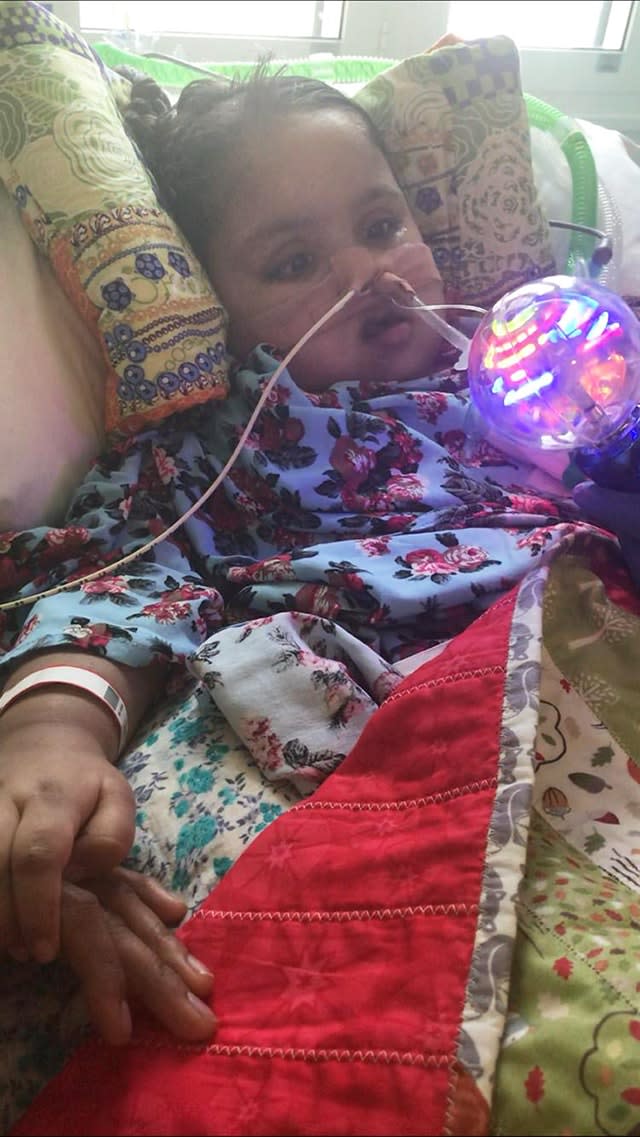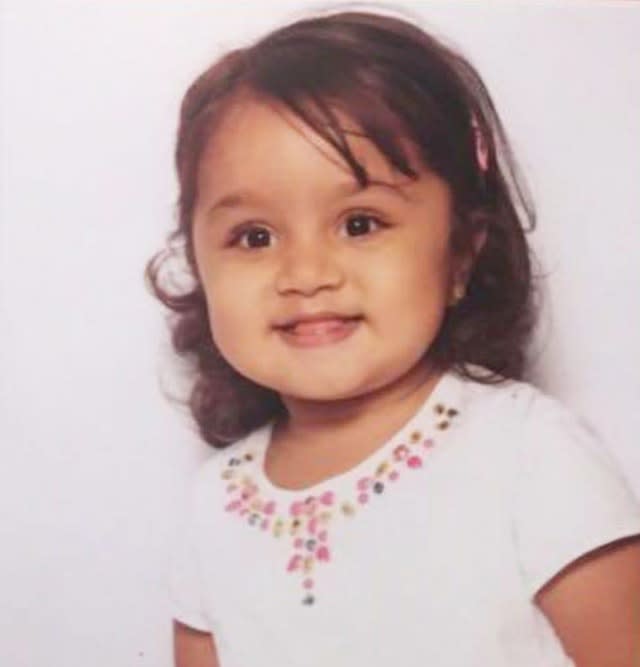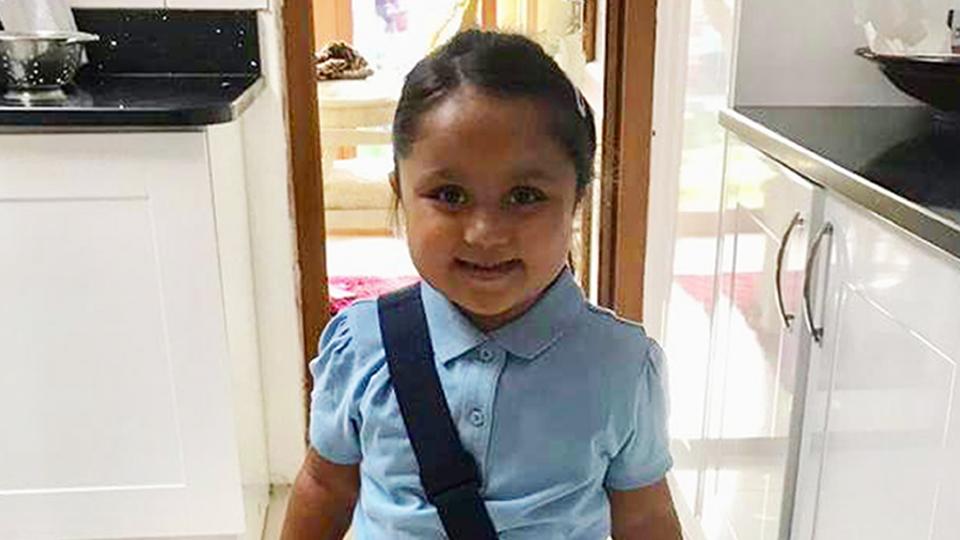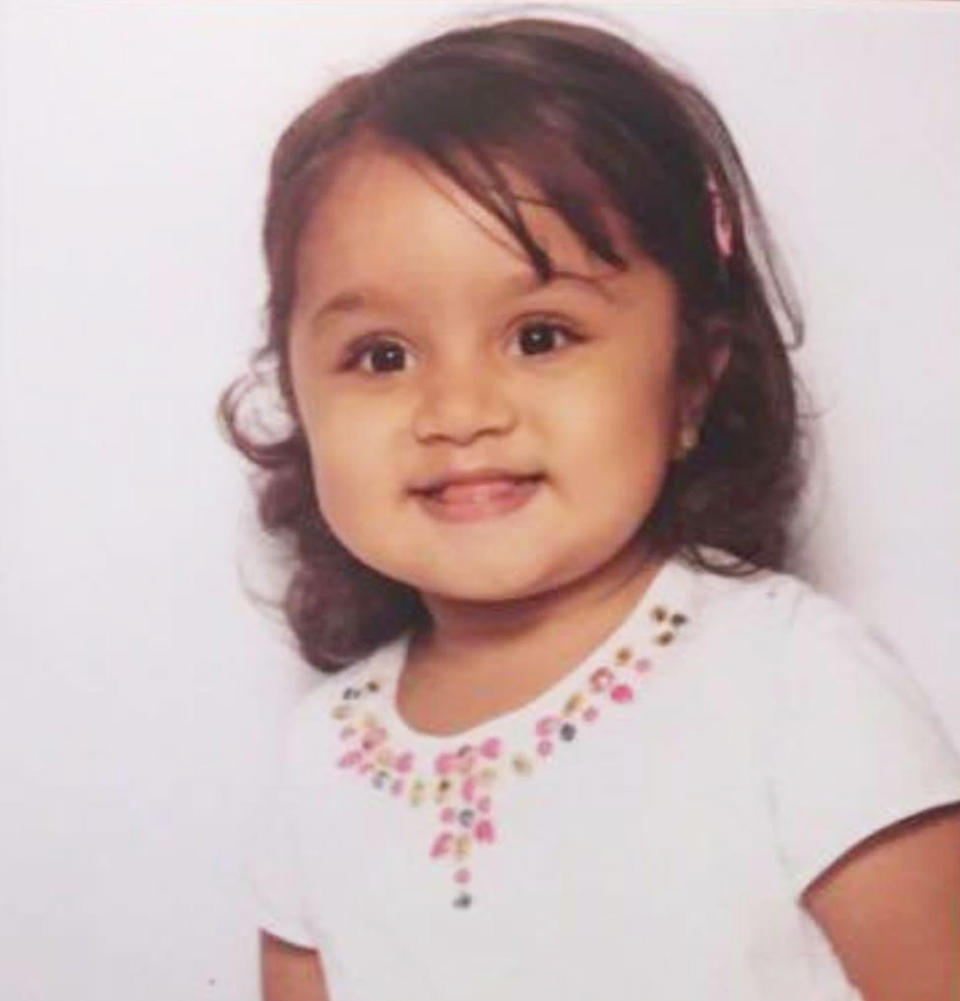Parents of girl, five, in legal challenge over whether she can be allowed to die
The parents of a seriously ill five-year-old girl have launched a legal challenge after doctors said it was in her best interests to be allowed to die.
Tafida Raqeeb was a previously healthy five-year-old who suffered a traumatic brain injury in February and has been on life support ever since at the Royal London Hospital, part of Barts Health NHS Trust.
Doctors have said there is no chance of recovery and have consulted a range of other medics who all agree that treatment is futile.
However, her parents, from Newham, east London, say experts at Gaslini children’s hospital in Genoa, Italy, are willing to treat her and believe she could emerge from her coma in a few months.
Tafida’s mother, Shelina Begum, a 39-year-old solicitor, and father, construction consultant Mohammed Raqeeb, 45, lodged papers with the High Court on Tuesday morning seeking a review of the case.

The case will be before a High Court judge on Tuesday afternoon to deal with preliminary matters.
Mrs Begum, who works for a London law firm, told PA: “Our daughter is currently stable. Everything with the hospital is amicable but we want to take her to Italy to give her the best chance.”
A change.org petition set up by Mrs Begum to support the move has reached more than 5,000 signatures.
On it, the family wrote that Tafida suffered “a ruptured blood vessel (arteriovenous malformation) in her brain.
“On 9th February, Tafida collapsed at home and suffered a cardiac and respiratory attack.
“She was rushed to the local hospital and later transferred to a specialist hospital for brain surgery.
“Post-surgery, the neurosurgeons had told the family that the first 48 hours to one week would be critical for her but like the determined little child we knew her as, she fought hard.”
It said that five months later, Tafida has begun to show signs of progress and is “reacting to pain, movement of limbs and opening and closing of eyes.”
It added: “Initially, the family were informed that Tafida will have a tracheostomy, which meant that she can come off the ventilator.
“The family were even told that she may be able to go home after a few months and her recovery could continue at home.
“However, the medical team have now changed their mind and want to withdraw ventilation to end her life.
“Tafida’s parents are very distraught as they have seen their little daughter make progress in the five months that she has been in intensive care; and therefore have requested to allow more time for her recovery.
“Unfortunately, the plea fell on death ears, and so not wanting to leave any stone unturned, they researched foreign treatment.
“They have found a European hospital willing to continue treatment for Tafida but sadly, RLH are refusing to release her.
“We would like to request Royal London Hospital to give this five-year-old child a chance to make a recovery and allow her to be transferred to a hospital that is willing to take care of her and continue with her treatment.”

A statement from Barts Health NHS Trust said: “This is a very sad case, for which we are in close contact with the family to offer support.
‘Our expert clinicians caring for Tafida Raqeeb have determined, in discussion with additional independent medical experts elsewhere in London, that further invasive medical treatment is futile.
“As such we are ensuring that we keep the family involved and uphold Tafida’s best interests, recommending withdrawal of life sustaining treatment and instigating palliative care.’
Several medical professors in Italy have also been consulted and said they are unaware of any additional treatment that is available to treat her condition.
Charlie Gard, whose parents fought Great Ormond Street to enable him to continue to be treated, died in July 2017.
His parents, Chris Gard and Connie Yates, had wanted him moved from Great Ormond Street in central London for experimental treatment they hoped could give him “a meaningful life”.

 Yahoo Movies
Yahoo Movies 



